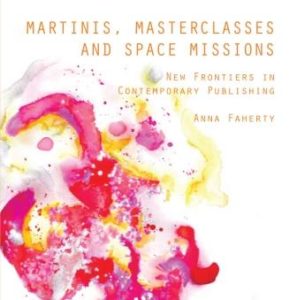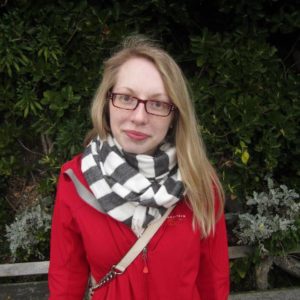
Producing my first book: learning from teammates, mistakes and my masters programme
Posted on June 6, 2013 in Uncategorized
When I started looking into MA Publishing courses, everyone around me was supportive. Yet, their eyes were full of questions: Why England? Is it worth the money? Will you really learn anything? Why not just get a job? While only a few voiced their concerns, I had answers for every question. I chose England because London is the hub of all international publishing, which gives me a great jumping off point for the industry; so yes, of course it’s worth every penny. Not only would I get a leading education from Kingston University, but I would also explore various cultures from the city itself. Kingston’s MA programme covers all areas of the industry. In the past year I have learned about marketing, copywriting, acquisition, international publishing, pitching books, P&L statements, rights, production and much more. At the same time work placements, internships and group projects have instilled a professional confidence in me.
One major group assignment challenged us to produce a printed book in just a few weeks. Half the programme’s students were assigned the task of creating Martinis, Masterclasses and Space Missions: New Frontiers in Contemporary Publishing, a collection of posts from the Kingston Publishing Blog. The process began like any other book: a manuscript was delivered, covers were designed and chosen, layouts and typesetting began and then edits after edits were made before submitting the final PDF to a printer.
Throughout the project, our team aimed to utilise each member’s strongest skills, hoping to make the process completely smooth and efficient. However, nothing ever goes according to plan. Our editor was one tough cookie (or should I say biscuit?), which was something we hadn’t anticipated. Working together to produce a sound book from cover-to-cover was something we had never done before, let alone doing it while trying to please an outside source. This was the first major lesson. We forgot we weren’t making the product for ourselves; rather, we were developing something for a defined publisher and a specific market. Without that awareness, the book wouldn’t sell and the title would be a flop … even if it wouldn’t be sold through traditional retail avenues.
During the entirety, our progression depended on approvals from the editor. While we waited for her responses we pondered on the ‘what ifs’ and experienced the ‘oh shit, she hates it’ moments; a few days felt like interminable weeks. At the time it was a natural reaction, but in hindsight I see we should have been more confident in our submissions.
After days of frustration and many cheers, we finally produced the finished book. The experience taught me some beneficial lessons that we can all apply upon graduation:
- Communicate, communicate, communicate! Even if you think you’ve communicated enough, you haven’t. Don’t attempt to solve problems with little help or guidance – ask for help if it’s needed. Because realistically, it’s nearly impossible to complete a book without help from others; and it’s impossible to get help or clearly understand problems without good communication.
- Using the strong skills of each member is key, as is understanding how their roles impact your own. Once our group understood how other tasks and roles impacted each other, we worked more efficiently as a team.
- Be confident. Trust your gut and believe in your work. You’ve put in loads of time, sweat and stress over the project, so take pride in the piece! Believe in the decisions that have been made, as long as those judgements are based on solid research and considered discussion.
- And again, communicate –with your team members, with your client or author, and with other departments.
Overall, the experience of working in a team to produce a book was a fantastic one. Although there were times of uncertainty and stress, the project gave me, and I’m sure the rest of the group, a better understanding of what it takes to publish a title. The learning curve was steep, and our knowledge was definitely put to the test, but choosing a Masters programme that involved a real-life task has definitely given me a strong insight into how the publishing industry evolves, one book at a time.
Martinis, Masterclasses and Space Missions: New Frontiers in Contemporary Publishing is edited by Anna Faherty and published by Kingston University Press. You can find out more, and download a free sample, from the Kingston Publishing Blog.
Amanda Marzolf is originally from the US, and is enrolled in the MA Publishing programme at Kingston University, where she is working towards a career in children’s literature. You can read about her adventures inside and outside of the publishing industry in her Montana to England blog and follow her on Twitter at @admarzolf.






 Listen to the podcast
Listen to the podcast  Explore the Youtube channel
Explore the Youtube channel